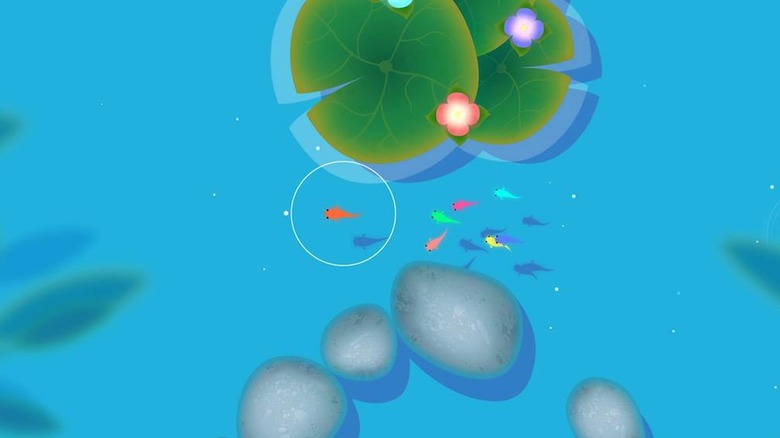Watch The Trailer For Koi, The First PS4 Game Developed In China
Seeing big-name video games for a major console come out of China is not an everyday thing, let alone small, indie titles. So it's fitting that the first such game for the PlayStation 4 is a beautiful, vivid experience called Koi. Coming from Chinese developer Oasis Games, Koi will be one of the first title to be published Sony Computer Entertainment Shanghai (SCES), and will be seeing its debut public appearance at the Game Developers Conference later this month.
After watching the trailer for Koi, it's easy to see the similarities with Flow, the PS3 game from Thatgamecompany, who went on to develop the hit Journey. Both games aim to be philosophical, almost meditative experiences, with players controlling a fish — literally, in Koi's case — and navigating a minimalist environment.
Oasis Games describes Koi as asking players "if they can find happiness and peace of mind by bringing purity to a lotus pond." There's no heavy action sequences, but instead puzzles, a goal of returning beauty to the pond, and an introspective journey taken as a single koi fish.
"Separated from your owner, you find that your once tranquil pond has been transformed into a world of darkness and danger. What was once beautiful has turned deadly. Even the friendly Light Fish have become predatory Dark Fish that will attack anything that comes near."

While not made clear in the trailer, Koi is also said to feature a story that will naturally emerge, accompanied by a hypnotic Chinese piano score. Players will have the option to complete side quests, such as searching for puzzle pieces discovering hidden melodies that can be used elsewhere.
It was only recently that China finally lifted its ban on the sale of game consoles, but it's likely there are other game developers, especially on the indie level, eager to see their creations reach other parts of the world. If Koi turns out to be well received, it could bring more attention to other studios in the region.
SOURCE PlayStation Blog
